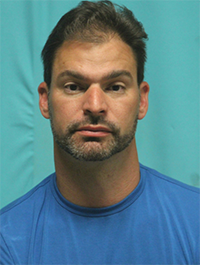January 29, 2018
AG Paxton Stands Committed to Honoring the Dignity of the Unborn and
Defending Texas Law on the Humane Disposition of Fetal Remains
Attorney General Ken Paxton today announced that his office will continue fighting to honor the dignity of the unborn after a U.S. District Court issued a temporary restraining order blocking implementation of Texas’ new law on the humane disposition of fetal remains.
“Texas values the dignity of the remains of the unborn and believes that fetal tissue should be disposed of properly and humanely,” Attorney General Paxton said. “My office will continue to fight to uphold the constitutionality of the new law, which simply prevents fetal remains from being treated as medical waste.”
The law enacted by the Texas Legislature requires health care providers to inter fetal tissue from miscarriages or abortions through burial, cremation, or the spreading of ashes. Under previous law, fetal remains could be discharged into a sewer system or incinerated and sent to a landfill.
The U.S. Supreme Court has consistently held that states may express their respect for the unborn as long as they do not impose a substantial obstacle to a woman’s right to a pre-viability abortion. The law enacted by the Texas Legislature imposes no such obstacle. Compliance with the law can be achieved at minimal or no cost and without violating a patient’s constitutional rights.
AUSTIN – Attorney General Ken Paxton today announced that his office will continue fighting to honor the dignity of the unborn after a U.S. District Court issued a temporary restraining order blocking implementation of Texas’ new law on the humane disposition of fetal remains.
“Texas values the dignity of the remains of the unborn and believes that fetal tissue should be disposed of properly and humanely,” Attorney General Paxton said. “My office will continue to fight to uphold the constitutionality of the new law, which simply prevents fetal remains from being treated as medical waste.”
The law enacted by the Texas Legislature requires health care providers to inter fetal tissue from miscarriages or abortions through burial, cremation, or the spreading of ashes. Under previous law, fetal remains could be discharged into a sewer system or incinerated and sent to a landfill.
The U.S. Supreme Court has consistently held that states may express their respect for the unborn as long as they do not impose a substantial obstacle to a woman’s right to a pre-viability abortion. The law enacted by the Texas Legislature imposes no such obstacle. Compliance with the law can be achieved at minimal or no cost and without violating a patient’s constitutional rights.

















